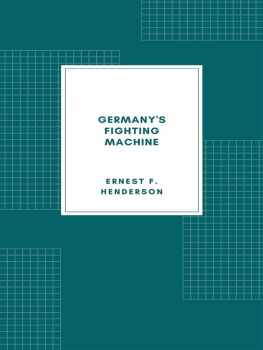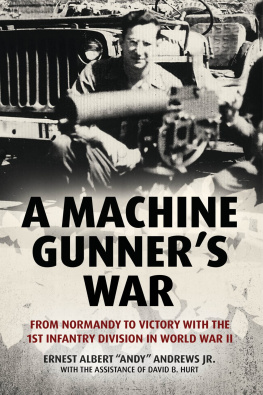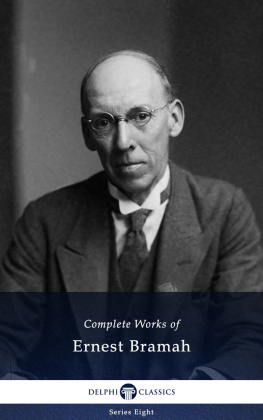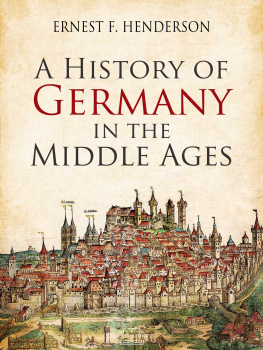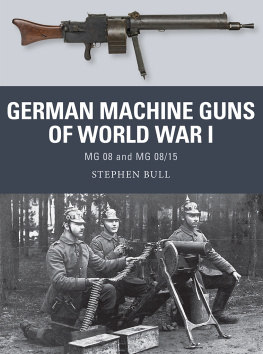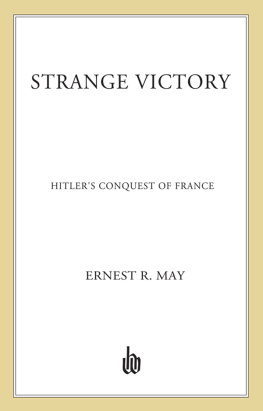Ernest F. Henderson - Germanys Fighting Machine (Illustrated)
Here you can read online Ernest F. Henderson - Germanys Fighting Machine (Illustrated) full text of the book (entire story) in english for free. Download pdf and epub, get meaning, cover and reviews about this ebook. year: 2021, publisher: Librorium Editions, genre: Art. Description of the work, (preface) as well as reviews are available. Best literature library LitArk.com created for fans of good reading and offers a wide selection of genres:
Romance novel
Science fiction
Adventure
Detective
Science
History
Home and family
Prose
Art
Politics
Computer
Non-fiction
Religion
Business
Children
Humor
Choose a favorite category and find really read worthwhile books. Enjoy immersion in the world of imagination, feel the emotions of the characters or learn something new for yourself, make an fascinating discovery.
- Book:Germanys Fighting Machine (Illustrated)
- Author:
- Publisher:Librorium Editions
- Genre:
- Year:2021
- Rating:3 / 5
- Favourites:Add to favourites
- Your mark:
- 60
- 1
- 2
- 3
- 4
- 5
Germanys Fighting Machine (Illustrated): summary, description and annotation
We offer to read an annotation, description, summary or preface (depends on what the author of the book "Germanys Fighting Machine (Illustrated)" wrote himself). If you haven't found the necessary information about the book — write in the comments, we will try to find it.
Germanys Fighting Machine (Illustrated) — read online for free the complete book (whole text) full work
Below is the text of the book, divided by pages. System saving the place of the last page read, allows you to conveniently read the book "Germanys Fighting Machine (Illustrated)" online for free, without having to search again every time where you left off. Put a bookmark, and you can go to the page where you finished reading at any time.
Font size:
Interval:
Bookmark:
- There is only one footnote: it has been placed at the end of Part II.
- The spelling and hyphenation are as found in the original text.
- There is one spelling mistake that deserves mention. Although dreadnaught is an accepted spelling of "dreadnought when used to mean fearless, Henderson's use of it to denote a certain type of warship is incorrect. Warships of this type were called dreadnoughts after H.M.S. Dreadnought, the first example of its type.
- The table of contents was not part of the original text.
- There are 87 illustrations in this book. These illustrations, with a link to each of them, are listed in the Appendix. This Appendix was not in the original text.
- The captions of all the illustrations have been left as they appear in the book. Six of them, however, contain a numbered link to a note in the Appendix that explains why and how the caption should be changed.
FIGHTING MACHINE
Why She Arrayed Them Against the
Allied Powers of Europe
History of Germany in the Middle Ages
Blcher, Etc., Etc.
THE BOBBS-MERRILL COMPANY
PUBLISHERS
T HE B OBBS -M ERRILL C OMPANY
| The War |
| The Army |
| The Navy |
| List of Illustrations |
FIGHTING MACHINE
Font size:
Interval:
Bookmark:
Similar books «Germanys Fighting Machine (Illustrated)»
Look at similar books to Germanys Fighting Machine (Illustrated). We have selected literature similar in name and meaning in the hope of providing readers with more options to find new, interesting, not yet read works.
Discussion, reviews of the book Germanys Fighting Machine (Illustrated) and just readers' own opinions. Leave your comments, write what you think about the work, its meaning or the main characters. Specify what exactly you liked and what you didn't like, and why you think so.

